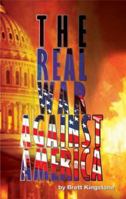Mother of Exiles: Part Two: Fuel and Part Three: Heat
Select Format
Select Condition 
Book Overview
Do demons hide in the shadows of the cloud-gorging towers of New York?
Do angels watch us from the impossible bridges, the shimmering rivers, and shoaling city streets?As the city of New York grows, the Foundryman has found a way to escape his captivity.
Over the centuries, New York becomes a thriving metropolis that tempts dreamers yet delivers nightmares. With every passing moment, death and violence stalk the lives of millions as the invisible Pyre of Souls, seethes, rages, smolders, and snakes above the city.
While the remnants of a sacred Bough remain and the descendants of the Watchers live, the Foundryman cannot obtain the vengeance and justice he desires.
As the city and inhabitants endure increasing mortal threat, can Cal and Ember save those they love and find redemption? What secrets hide in their past? And what role does a beloved stillborn child have in the present, and the future?
Beneath the Statue of Liberty, the inscription welcomes the dispossessed and Lady Liberty has a different name-and in the raging inferno of the Pyre of Souls, can a new Mother of Exiles be found in the ashes of the fire?






















